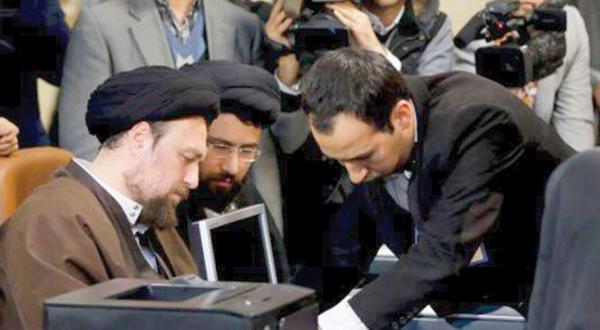London- Major General Mohammad Ali Jafari, commander of the Army of the Guardians of the Islamic Revolution of Iran, expressed his deep concern regarding the aftermath of the new Western approach Iran is taking upon itself. He considered that cultural obstacles, more than reasons of security and defense, striking division, today hurdle the decision-making process in Iran. Jafari denoted the new state of affairs developed with the US as the beginning of the end.
Jafari’s concerns stem from the recent exposure the Iranian culture is being faced with. Accusing the large-scale commercial deals for prompting the new method of Iranian dealing with Western policy, he condemned what is happening to have been sidetracked from the core of the Iranian revolution.
Moreover, Jafari raised the question of defining what breaches red lines, and to recognize cultural invasion when it is occurring. He also broached the crucial significance of “cultural jihadisim” by comparing it to “military and defense jihadism”; in other words advocating for economic deprivation to be a core factor of resilience, and that sanctions were a favorable option when facing the buying into a deal with the West.
Ali Saeedi, Iranian Supreme Leader’s representative to the Army of the Guardians, warned of the degree of foreign interference that the upcoming elections will be witnessing, arguing that Western thought is trying to promote itself in Iran via endorsing relationships with parties inside the Iranian parliament.
In an outlook on current events, Saeedi paralleled Rouhani’s current acceptance of deliberating with US administration to that preceded by Nikita Khrushchev, Soviet Union Leader, which ushered in the end for the Soviet rule.
Ali Rida Mahjoub, Secretary General representing blue collar workers in Iran, has backed the necessity of running free elections and the endorsing of political freedom. He stated that a fair election process is the route for salvation from gangs, greed and opportunism spread in the country.
The Iranian elections over the past couple of days have suffered turbulence that could possibly compromise the whole legislative process. After the factor of competition being squared out by The Guardian Council of the Constitution, by the means of confiscating the eligibility of a score of candidates belonging to the same school of politics and depriving them from the participation completely, the whole election was set into rollercoaster mode.
Fears of the public’s attitude towards the upcoming elections when asking questions on justice and fairness has recently unraveled an additional fear factor of cultural war. All current indicators jeopardize the outlook on the elections as a whole.
Moreover, most political campaigns being run by candidates are introducing a new pretense to the Iranian public, in addition to spurring up division within the public opinion on governmental matters.
Very similar to any other governing system, Iran’s upcoming elections are overwhelmed with the ultimatum between fundamentalist drive and economic inclination.
What is more is that the current parliament, caught in the fuss of the elections and campaigning, is being accused of lack of diligence towards its public duty. Moreover, the camps within the parliament have split into two main categories, one supporting the nuclear deal and one against.

